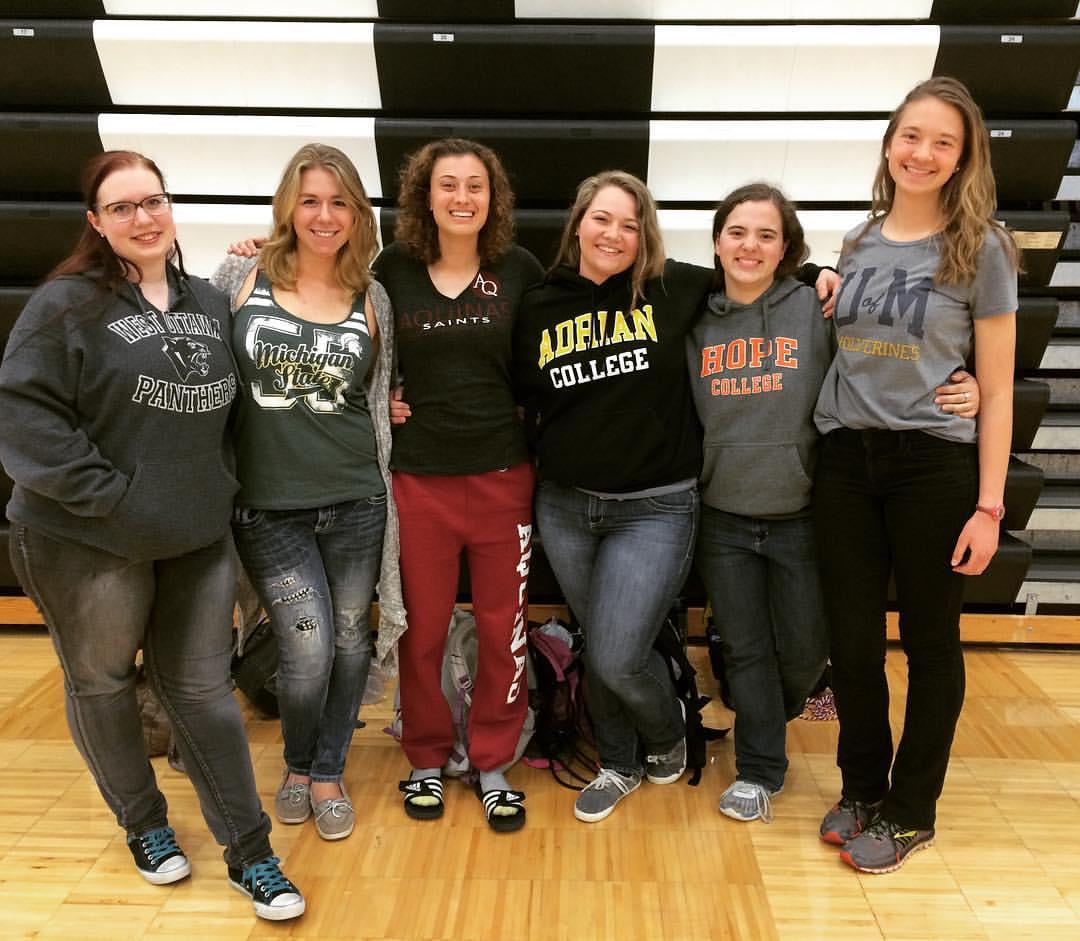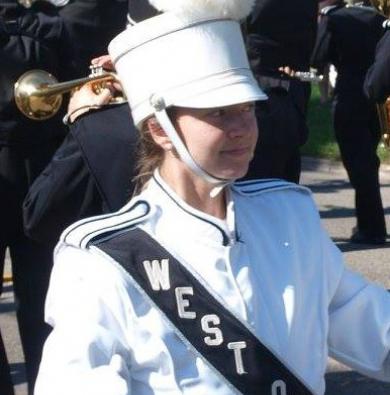Blog
Get the inside scoop about life at U-M and applying to Michigan from current student bloggers, Admissions staff, and guest faculty writers.

Get the inside scoop about life at U-M and applying to Michigan from current student bloggers, Admissions staff, and guest faculty writers.


As a high school student, I was unsure about how to pick a college. Both of my parents attended college, but that was forty years ago -- and a lot has changed since then. College applications are different even from when my older sister applied twelve years before me. I can’t imagine how much harder it is for students who don’t have any family experience with the process.
So, as one who’s been through it, this is my advice.
Freshman year, start thinking about college and whether it may be the right choice for you. Look for opportunities in school to challenge yourself with honors classes, or classes that will set you up to take AP/IB classes or to dual enroll in a local college in your junior and senior years. Take summer classes if they will help you get ahead and you are able to. I tested out of health so I could fit both band and French into my schedule, and my sister took pre-calculus over the summer so she could get into AP Calc the next year. You never know what’s available unless you ask, so check with your school counselor about the possibilities to expand your academic experiences.
Make friends with older students. Ask questions to learn what classes to take, to find ones that may interest and challenge you. One of my close friends was two years older than me and she was the one who helped me with what AP classes to take and when. Seek out upperclassmen whom you admire, and ask yourself what you can do to be more like them when you are in their place. When I was a freshman, a senior in my band used to light up my day whenever I was sad because he never stopped smiling. I vowed to be more like him, and I am a happier and kinder person for it.
Get involved in things that you’re passionate about. My thing was band and running cross country and track. If your school doesn’t offer anything that you are interested in, go out into the community or see if you can start an after-school club. My high school actually had a chocolate milk club, where people got together and drank chocolate milk.
If you started off on the right track in freshman year, keep going! College apps are still a ways off, but keep college in the back of your mind. Start thinking about what you want in a school. Do you want a small college where you know everyone? Do you want a college with great sports teams? Do you want to be able to do research? Do you want to go to college in the middle of a big city? Do you want to start at community college? You don’t have to have answers yet, but these are some of the factors you may want to consider.
Keep choosing classes that you know are going to challenge you. This is the year that I started taking AP classes, but that is not a hard and fast rule. Aspire to take every class your school offers in something that you love. It could be programming, creative writing, science, or theater. I took every higher-level science class that my school offered (except for AP Environmental Science - I’m a physics major, so I don’t count that as a science). Then, take the ACT or SAT just for fun. Your score might not be that good on your first try, but it will give you valuable practice.
Continue with activities that you started in freshman year, or find new things to love. Watch the leaders: they might be the captains of the team or the first chair of your section, but they might also be a student who works hard every day and doesn’t say a word about it. They might be the runner who comes in somewhere in the middle of the pack, but then stays to cheer every single athlete across the finish line. These are all different kinds of leadership, so find the leaders that you aspire to be like and emulate them. Someday they will graduate and leave you to fill their shoes.
Start thinking more closely about college. Remember those questions that you asked yourself last year? This is when they come into play. If you’ve taken the ACT or SAT or AP classes, and you checked the box that said that “colleges can send me information,” you’ll start receiving college information. A lot of college information. Don’t just send it to spam or throw it in a corner somewhere, actually look through it to find schools that fit your criteria or that you want to know more about.
From there, make a list of colleges that you may want to apply to, even if you don’t have all the answers yet. You’ll eventually discover which areas are a priority for you and match them to colleges that meet your interests. For me, the size of my college was less important; I applied to schools as small as 2,000 students and as large as 44,000. But I did care that students were supportive of their sports teams, so all of the places I applied to had good athletics teams. I also cared about elements as little as the weather - I wanted snow and refused to go south of the Mason-Dixon line.
In the spring, take that college list and schedule campus visits, if it is possible for your family to do so. Otherwise, scour their admissions websites. More and more schools are doing virtual tours for prospective students who live too far to visit easily. You can also follow their social media accounts to get a better idea of what life is like for students there.
Take on leadership roles in organizations. If you haven’t had the opportunity to do so yet, don’t be discouraged. Aspire to be a leader, but it doesn’t really matter how you get there. I was a three-sport varsity athlete and didn’t have any official leadership positions until my senior year. Even then, I had been passed up for captain four times and drum major once. You can be a non-positional leader: someone who is a leader without an official title. Often non-positional leaders can have a greater impact on a group than the official leader can because they are within the group rather than in front of it.
Take the most rigorous classes that you can. Academically, this should be your most challenging year. I took four AP classes my junior year (but I would recommend caution before you do so). Do the IB programme if your school offers it. The IB diploma is more valuable than individual IB classes, but it requires more, like community service and a research paper. My school offered both; I chose to take AP classes instead of doing the IB programme because I would not have had time for band. That was the right decision for me, but either approach could be right for you. If your school does not offer either AP or IB courses, don’t worry about it. Take the most challenging courses that you can, or think about dual-enrolling at a local college. Colleges take into account what opportunities you had as well as what you did with those opportunities. Talk to your academic counselor if you need help with your plan -- they are your friends.
Focus on being a leader. You made it! You have one year left of high school and it’s time to finish big. Senior year is different from all of the other years though because the people that you always relied on to lead are now gone. You are the leader now.
Unfortunately, the start of my senior year was rough. Almost all of my close friends were a year older than me and had gone off to college. It’s hard when you feel left behind. But I realized that I could use my situation to make friends with underclassmen and people whom I had never gotten the opportunity to talk to when I had my posse around. I used that year to focus on and care about each and everyone in the groups that I led. I hope that I was able to positively affect someone’s life, the same way that seniors affected mine throughout the years.
Don’t fall into the trap of senioritis. Colleges do rescind acceptances, and yes, it is very painful. Continue to challenge yourself academically and know that the more you push yourself in high school, the easier it will be to start out at college. Since my high school offered so many, I ended up taking ten AP classes and one IB class in total. I walked into U of M with almost enough credits to be a junior. (I don’t necessarily recommend that because of something called upper level tuition, but that’s another story for another day.) Having a cursory knowledge of basic college-level sciences, math, reading, writing, and problem-solving helped me so much going into my first semester. Plus, I avoided intro classes, freeing up my schedule for other cool coursework.
Pull out that list of colleges that still appeal to you and fit your interests. Most people will tell you that you need to apply to a “safe school” and a “reach school” and whatever else they say. I say apply to as many colleges as you want. Yes, you probably should have one school that you know you can get into. But do not rule out any schools because you think you will not get admitted. This is the time to stretch toward your goals. I applied to six and I think that was a good number for me. But you will have to find that perfect number for you. (Note: applications do cost money, and if the application costs are going to be a problem for your family, please ask the colleges for application fee waivers. Many institutions grant them liberally.)
Start your essays and applications in the summer before you get to the craziness of your senior year. By the time school starts, you should have asked teachers for letters of recommendation, decided what colleges you would like to apply to, started writing those essays, and at least reviewed the applications. I know that sounds too early, but the (not so) secret is that most colleges will accept more students at the very beginning than they will at the end of the admissions season. So apply early! I didn’t. I applied to Michigan the last possible day that applications were due, which is why I have this advice for you. Although it worked out for me (phew!), don’t try this at home, kids.
My biggest piece of advice? Visit the schools where you are admitted as soon as you get your acceptance letters, if you are able. Imagine yourself there. Walk around the campus. Talk to students. Sit in on a class. Eat in a dining hall. Sleep overnight in a dorm if that is offered. Ask questions. As a tour guide, my job is to answer your questions, so please ask! Being in Ann Arbor made Michigan go from off my radar to my absolute top school. Without that visit, I wouldn’t be here today!
Then choose! Be confident that your decision will be the right one for you.The only thing left to do is to pay your enrollment deposit by May 1st and you are officially a student! Watch for info on housing, orientation, and other communications about your first year of college, as they will be coming soon after that. Also be sure to connect with other first-year students through your school’s social media accounts and you’ll feel like a part of your new community in no time. Then get excited for the next big adventure in your life!
Best of luck!

Katherine is a student in the College of Literature, Science, and the Arts. She can be reached at [email protected].